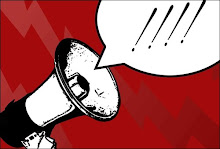Now don't get me wrong; having democratic systems of government, as opposed to power by force, is the only way to guarantee that governments are accountable to their people. Countries that aren't democratic have far higher rates of human rights abuses, because, really, they don't owe their citizens anything. Democracy, overall, is the best system we've got. But sometimes you just have to over-rule the will of the people.
Sometimes democracy is bad. People aren't always nice. Occasionally, we promote things solely to benefit ourselves, ignoring the detrimental effect that it has on others. Take, for example,lower taxes for the rich, stealing, slavery. As Darwin kind of said, it's survival of the fittest, a dog eat dog world out there. And the will of the majority is often to harm the minority.
And that is exactly what democracy promotes; instead of a select few imposing their will on everyone, instead, sheer numbers create ruling classes. When you say the will of the people is always right, someone has to ask back, which people? Governments are only accountable to slightly over half of their people. National has a fair idea of who voted for them, and it certainly wasn't those on welfare; so why help them?
Recently in the U.S.A, teh California Supreme court refused to nullify Proposition 8, because it believed its role was to interpret, not alter the constitution. But if not them, who? When the human rights of a minority are being violated, it is not the masses who will stand up for them, so those with authority must. The American people didn't issue the Emancipation Proclamation
, a man ignoring the will of the people who elected him, Abraham Lincoln did. Was he right? Heck yes! So why aren't more people willing to stand up, against popular opinion, for human rights?
(Quick sidebar, click here for Rob Thomas' fantastic piece on why we should support gay marriage, especially over civil unions, which is what NZ (and most other nations) have currently)
democracy is not always the bastion of civilisation. People who aren't willing to think deeper, or to see the effects of decisions beyond their own backyards, are those who the people in charge are often kowtowing to. President Obama, who overwhelmingly won the US presidential election because he promised change has been forced to reneg on many of his campaign promises (for example, the closure of prisoner dentention camp Guantanamo Bay), because his Seante wont fund him. Why wont his Senate fund him? Because he wants to do what is right, but not politically popular; people are suddenly willing to trash their values in favour of peice of mind, because the reality of having dangerous prisoners that close is now too much for them. And that's what this boils down to; for a truly democratic society, are we willing to sacrifice doing what we know is right?
Subscribe to:
Post Comments (Atom)

3 comments:
I want to leave you a highly intelligent and thought provoking comment, but history is taking up all of my brain right now. All I can say at the moment is that, obviously, democracy isn't perfect, but it's a lot better than any other system we've come up with so far.
I'm feeling slightly more able to leave an intelligent comment now.
I think that this is an something which highlights a key problem in discussions surrounding civil liberties and human rights. Who has the right to decide what is right?
With democracy, the idea is that together we can find the right path to follow, to make judgments on right an wrong. As you've pointed out, this is a great theory, but doesn't always work in practice. People who don't understand or even care about the issues have equal power to decide on their solution.
However, any other system would require us to decide that some people have the ability to decide on right and wrong and others not, which I'm not sure I agree with.
Oh, and I also think that Romana is a poo.
"However, any other system would require us to decide that some people have the ability to decide on right and wrong and others not, which I'm not sure I agree with."
We do this anyway. When we elect representatives, we're trusting that they'll have our best interests at heart, but also (supposedly) giving them some freedom to make choice in situations in which, while maybe we don't necessarily agree with them, we accept that those we elect have more knowledge and expertise about these issues than we do. The problem is, is that governance has become solely about the will of the people, with representatives permanently beholden to their constituents, for fear of not people re-elected. the populist politician will be elected over one that is dedicated and moral.
At least, i think that was the point I was trying to make.
Post a Comment